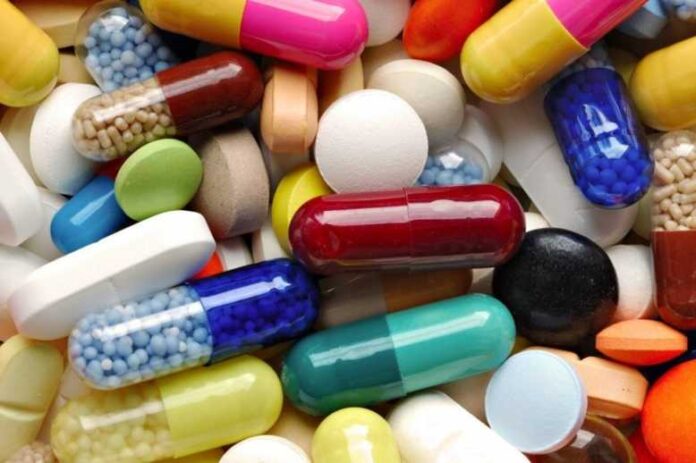The Pharmaceutical Manufacturers Group of the Manufacturers Association of Nigeria (PMG-MAN) expressed concerns on Sunday about the scarcity of foreign exchange in the country, which has adversely affected the local pharmaceutical industry.
They attributed the fluctuations in foreign exchange rates as a significant factor for the departure of some pharmaceutical multinationals from Nigeria.
The group raised these concerns during a news conference in Lagos, discussing the upcoming 7th Edition of the Nigeria Pharma Manufacturers Expo (NPME) scheduled for September 4 and 5.
The departure of multinational pharmaceutical companies like GlaxoSmithKline and Sanofi Nigeria Ltd within the past year was highlighted. GlaxoSmithKline (GSK) ceased operations in Nigeria in August 2023, ending a 51-year presence, while Sanofi exited in November.
Mr. Patrick Ajah, Chairman of the Local Organising Committee (LOC) for NPME 2024, emphasized that a stable exchange rate is crucial for the domestic pharmaceutical industry’s progress.
Ajah, also the Managing Director of May & Baker, noted that many companies are waiting for the implementation of the recently announced Executive Order.

On June 29, President Bola Tinubu signed an Executive Order removing tariffs and Value-Added Tax (VAT) on pharmaceutical imports.
The order eliminates tariffs, excise duties, and VAT on specialized machinery, equipment, and pharmaceutical raw materials to boost local production of essential healthcare products. However, the order has yet to take effect.
Ajah stated, “Unless the value of the Naira is stabilized, achieving the country’s target of 70 percent local drug manufacturing will remain a mirage.
The recent fluctuations in the Naira’s value have made it difficult for companies to plan and invest. This instability is a major reason why multinational companies are leaving.”
He explained that foreign investments are challenging due to the exchange rate discrepancies, adding that companies struggle to cope with the devaluation. “Fixing our exchange rate is the single most important step to reset our industry,” he said.
Ajah also called for increased government support for the local pharmaceutical industry, asserting that with the right support, Nigeria could produce 70 percent of the medicines it consumes.
He cited India as an example, where government support has significantly boosted the domestic pharmaceutical industry.
According to Ajah, Nigeria has the capacity for local drug production, but financial constraints hinder companies from investing in new facilities or upgrading existing ones. The recent devaluation of the Naira has exacerbated these challenges.
He urged for a reduction in interest rates, noting that the current rates, as high as 30 percent, are a major barrier to investment.
Mr. Frank Muonemeh, Executive Secretary of PMG-MAN, highlighted that local manufacturers currently produce 40 percent of the medicines used in the country.
He called for partnerships between the government and local companies, similar to those in the cement and petroleum industries. Muonemeh stressed that a robust domestic pharmaceutical industry would enhance national security.
He cited India’s prioritization of its domestic industry during the COVID-19 pandemic and advised the Federal Government to adopt a similar approach.
“Nigeria can achieve the goal of producing 70 percent of its own medicines with the right government support. Increased exports from the domestic pharmaceutical industry will also help alleviate the country’s foreign exchange challenges,” he said.
Discussing the 2024 Edition of NPME, Muonemeh revealed the theme: “40 Years of Advocacy: Fostering Partnership and Innovation to Unlock the Pharma Manufacturing Value Chain in Nigeria, Central & West Africa.” The expo aims to drive Nigeria towards self-sufficiency and medicine security, reducing dependency on imported medicines.
He emphasized that PMG-MAN members significantly contribute to national development by providing jobs, paying taxes, and more.
The 7th NPME 2024, the largest pharmaceutical manufacturing exhibition in Central and West Africa, is organized by PMG-MAN and partners, GPE India.
Experts predict that the Nigerian pharmaceutical sector is the next frontier for smart investment and trade, with great but largely untapped potential to contribute to national and regional development.
To unlock this potential, the group is organizing a biennial Pharma Expo and Exhibition, focusing on the latest pharma technology, machinery, equipment, Active Pharmaceutical Ingredients (APIs), and showcasing locally manufactured medicines, diagnostics, and consumables.
Muonemeh said the theme of the expo was chosen to enable comprehensive stakeholder engagement in the industry.The event is a must-attend for all actors in the pharmaceutical manufacturing ecosystem and potential investors.
It offers a rare opportunity for productive networking and B2B engagement among stakeholders, including regulators, policymakers, professionals, and ancillary companies.The event also welcomes academia, students, development partners, bilateral organizations, researchers, and NGOs.Participants are encouraged to visit the PMG-MAN’s website for registration.




